Iraq’s Premier To Visit Iran And Saudi Arabia
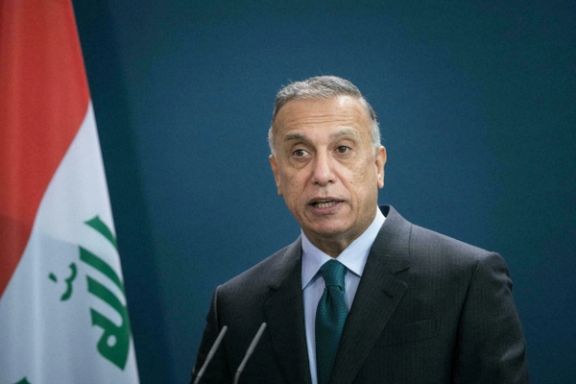
Iraqi Prime Minister Mustafa al-Kadhimi is scheduled to visit Iran after Saudi Arabia, an informed source has said.

Iraqi Prime Minister Mustafa al-Kadhimi is scheduled to visit Iran after Saudi Arabia, an informed source has said.
Iraq's Shafaq News Agency quoted the source as saying that al-Kadhimi would visit Iran within 24 hours after participating in the Riyadh summit.
Relations between Iran and Saudi Arabia as well as Iraq’s parliamentary reconfiguration following the mass resignation of the Sadrist bloc will probably be on the agenda of the Iraqi premier’s visit.
Iran and Saudi Arabia -- which are locked in proxy conflicts around the region -- have held several rounds of talks in the Iraqi capital Baghdad since 2021 to improve their ties, severed since 2016, with no major results so far.
On Thursday, Iraq's parliament swore in dozens of new lawmakers, enlarging the Iran-backed bloc in the assembly about two weeks after a group of 73 parliamentarians loyal to the powerful Shiite cleric Moqtada al-Sadr resigned on June 12 upon his order following eight months of stalemate over forming a new government.
Last week, Iraqi Foreign Minister Fuad Hussein criticized the Islamic Republic's interference in Iraq's internal affairs. He also said earlier this month that Baghdad had submitted a formal complaint to Iran for its aggressive behaviors toward Iraq and the Kurdistan Autonomous Region, and denied Iran's allegations that the Israeli Mossad is present in Erbil.
In March, Iran fired missiles at Erbil, claiming it used 12 ballistic missiles in that attack and targeted an Israeli intelligence center.
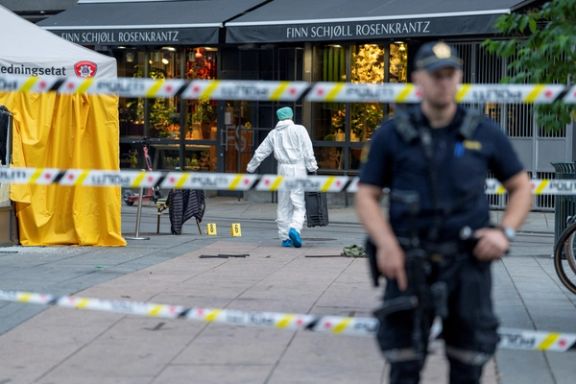
A Norwegian-Iranian man embarked on a shooting spree in a gay bar and the surrounding streets in Oslo on Saturday, killing two people and injuring more than 20.
The rampage took place inside and outside the London Pub, a well-known gay bar and nightclub open since 1979, as well as at one other bar in the center of the Norwegian capital in the early hours of the day as the city's LGBTQ+ community was due to celebrate its annual Pride parade, which is now called off upon police recommendations.
The 42-year-old suspect, identified as Zanyar Matapour, was detained minutes after the attack, according to police who said they believed he acted alone. Two weapons, a pistol and a fully automatic rifle, were retrieved from the crime scene.
"There is reason to think that this may be a hate crime. We are investigating whether the Pride was a target in itself or whether there are other motives," police said, adding that the man was “suspected of murder, attempted murder and terrorist acts.” “The attack was also being investigated as “a possible act of terrorism.”
Norwegian police, who are not normally armed, will now carry guns until further notice as a precaution, Commander Benedicte Bjoernland said. Norway's PST intelligence service said that it was investigating whether there could be further attacks.
The Nordic nation of 5.4 million has lower crime rates than many Western countries, although it has experienced hate-motivated shootings, including when Neo-Nazi extremist Anders Behring Breivik killed 77 people in 2011.
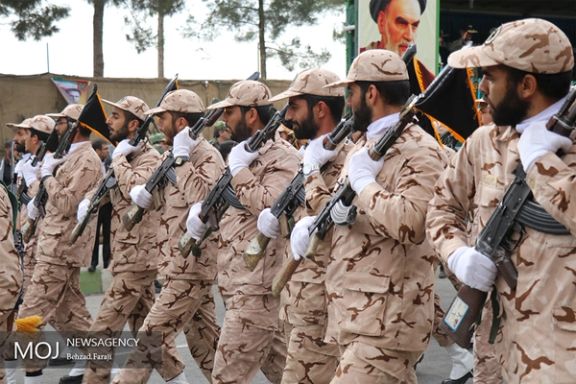
The Biden admin has decided to lift a ban on the entry into the US for Iranian men who have been conscripted into the Revolutionary Guard as part of their compulsory military service.
According to a notice issued on June 23, the Secretary of Homeland Security and the Secretary of State, following consultations with the US Attorney General, have determined that the ban shall not apply with respect to an individual who provided insignificant or limited material support to a Foreign Terrorist Organization (such as IRGC) under routine social transactions, as they do not “pose a national security or public safety risk.” The decree did not mention Iran or the IRGC.
Provided that the individual satisfies the relevant agency authority that he did not voluntarily and knowingly engage in terrorist activity on behalf of a designated terrorist organization, they are not barred from admission to the United States and from obtaining immigration benefits or other status.
The individual should also prove that he/she has not provided the material support with any intent or desire to assist any terrorist organization or terrorist activity; or any support directly be used to engage in terrorist or violent activity; or support for targeting noncombatant persons, US citizens, or US interests, the decree said.
The United States designated the IRGC as a “Foreign Terrorist Organizations” in 2019 as part of the “maximum pressure” campaign that then-President Donald Trump imposed on Iran after pulling out of the 2015 nuclear deal.
According to multiple reports, Iran is demanding lifting of US sanctions on the IRGC and its affiliates before it agrees to revive the 2015 nuclear deal known as JCPOA.
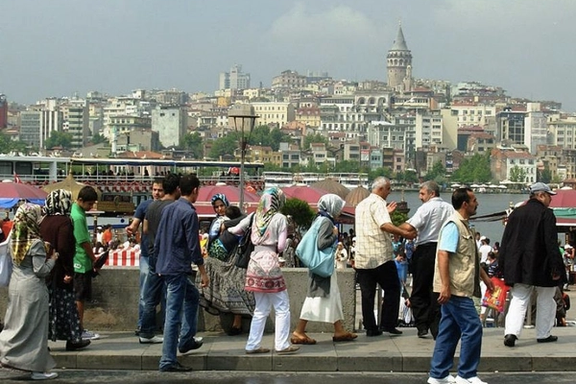
Israeli media have quoted a senior security official as saying that three separate Iranian squads were operating in Turkey, trying to attack Israeli ciizens.
Ynet news website quoting the official late Friday [June 24] reported that at least one attack was thwarted in the last minute. The target of one of the Iranian squads was the former Israeli ambassador to Turkey and his wife.
“A squad watched over them and was on its way to assassinate them, but the attempt was prevented,” the source said.
Another squad tried to hit Israeli tourists. "Their murder was prevented at the last second. They captured the squad just before a deadly terrorist attack, just before a bullet in the head," he said.
Israel began warning its citizens not to travel to Turkey at the end of May and the alerts became more frequent in mid-June. Turkey announced on June 23 that it had arrested 8 people, five of them Iranians, who were plotting attacks.
Tensions soared between Iran and Israel with the assassination of a top Iranian Revolutionary Guard (IRGC) operative in Tehran on May 22. Two assailants on a motorbike fired several bullets at Col. Hassan Sayyad-Khodayari outside his home in broad daylight, prompting Iranian officials to accuse Israel of organizing the attack, and vowed revenge.
This incident was followed by more mysterious deaths of IRGC officers and weapons experts, which were again blamed on Israel that has not denied responsibility as it is engaged in a secret war with the Islamic Republic.
One apparent fallout of repeated killings and sabotage operations in Iran was the head of IRGC’s Intelligence organization who was abruptly dismissed on June 23. Hossein Ta’eb, who was in charge of the secretive organization in charge of both internal security and secrets operations abroad for more than a decade was reportedly pushed out by his rivals.
Iran International reported on Friday that according to its sources, other security and intelligence chiefs in Iran did not like Ta’eb’s push into their turfs and found his recent failures in preventing alleged Israeli attacks as an opportunity to ask the Supreme Leader to fire him.
The Israeli source told Ynet that his country’s tactics forced Ta’eb to make “a lot of mistakes”, which made it easier to stop the terror squads. The Iranian spy chief was under pressure to attack Israelis and that is when he lost temper and made mistakes, the source said.
Iran’s foreign ministry on Friday vehemently denied all reports about assassination plans in Turkey, calling them an Israeli plan to harm Tehran’s relations with Ankara. But some Turkish media reported that a group of Israeli tourists in the Biaoolo district, were stopped by Mossad agents as they entered their hotel and were whisked away in armored vehicles and returned to their country.
The source quoted by Ynet also said that warnings for Israelis not to visit Turkey still stand because there is the possibility of more Iranian squads still remaining in the country.
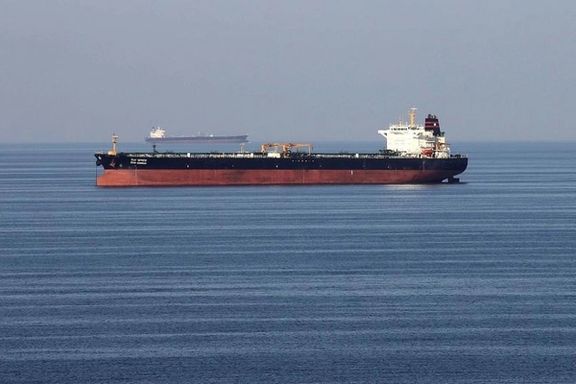
Advocacy group United Against Nuclear Iran (UANI) says two Iranian tankers are unloading their cargoes at the Baniyas Single Buoy Mooring (SBM) and a third is on its way to the port.
UANI Chief of Staff Claire Jungman published the photo of the tankers in a tweet on Friday explaining that Iranian tankers Daran and Golroo are discharging at the Baniyas SBM, while Arman 114 is engaged in an STS transfer with Traden, which is sailing under the flag of Cameroon after repairs in Turkey earlier this year.
In order to avoid detection of the destination of its cargo, Iran usually uses ship-to-ship transfers, in which the vessels turn off their transponders at the sea and secretly transfer oil cargo.
According to data by the UANI, Syria is the second largest importer of the Iranian oil after China. The Islamic Republic delivered more than 111,000 barrels of oil per day to Syria in the previous month.
It is not clear whether or how Iran is being paid for the shipments, whose value only for the month of May is over $400 million with current oil prices.
Earlier in the month, UANI called on six Chinese banks to end all financial transactions with Iran.
As part of ‘maximum pressure’ sanctions introduced in 2018 on leaving the 2015 Iran nuclear deal, US President Donald Trump signed an executive order threatening punitive US action against any third party dealing with Iran’s financial sector.
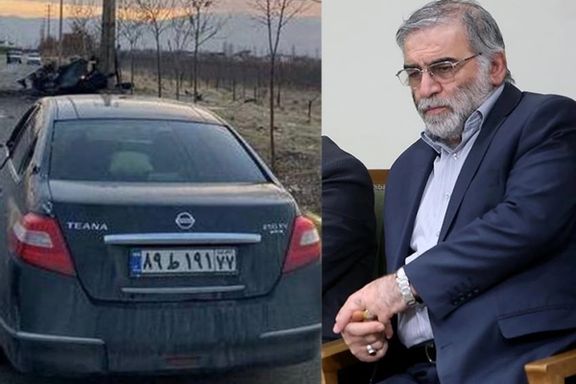
One of the suspects who was arrested in relation to the assassination of Iranian nuclear scientist Mohsen Fakhrizadeh has been freed on a bail of 250 billion rials (over $830 thousand).
Kurdish human rights group Hengaw said on Friday that Jamal Abdollahi, who is accused of helping the perpetrators in the assassination in November 2020 to flee Iran, was "temporarily" released on Thursday after 14 months of imprisonment in one of the security detention centers of the Revolutionary Guard in Tehran.
He was arrested along with his brother in April 2021 and was denied access to a lawyer during the past 14 months. His brother Kamal is still behind bars.
They are accused of helping some of the perpetrators escape through the border near the city of Baneh in Kurdistan province, but they were never tried over the charges.
His release comes as the chief of IRGC’s intelligence Hossein Ta’eb was replaced by Mohammad Kazemi, another figure in the outfit, reportedly due to long-simmering opposition by other top security figures.
Iran blames Israel for the assassination of Fakhrizadeh, said to had been Iran’s top nuclear man, in a highly complicated operation east of the capital Tehran involving a remote-controlled one-ton automated weapon that had been smuggled into the country in pieces.
Iran has also accused Israel of sabotage operations against its nuclear facilities including an explosion in April 2021 that inflicted major damage to the Natanz uranium enrichment site.
Israel has never officially taken responsibility for any of these assassinations and sabotage operations but also has never denied involvement.